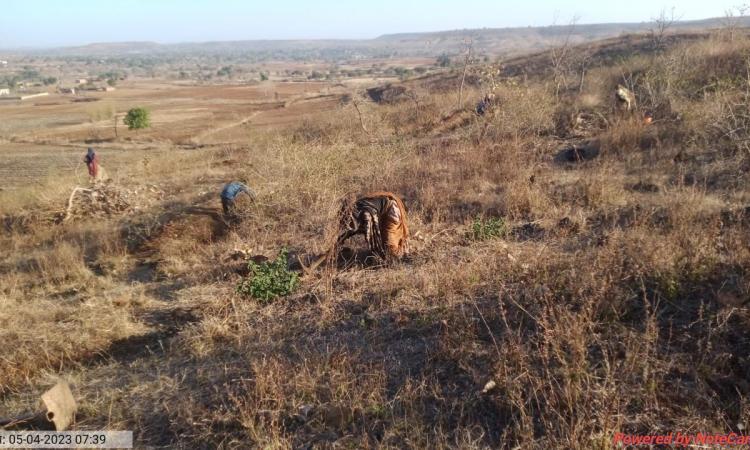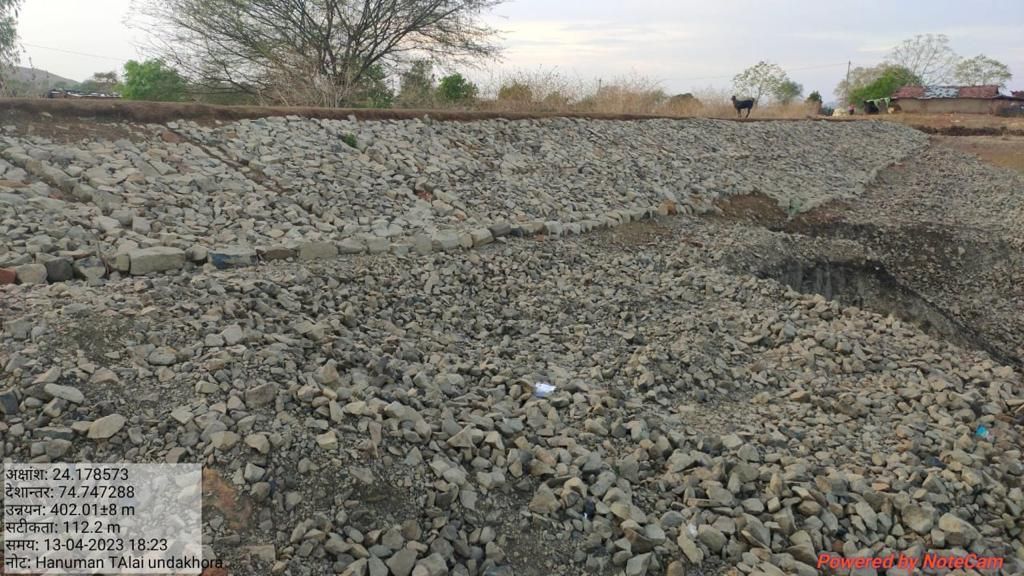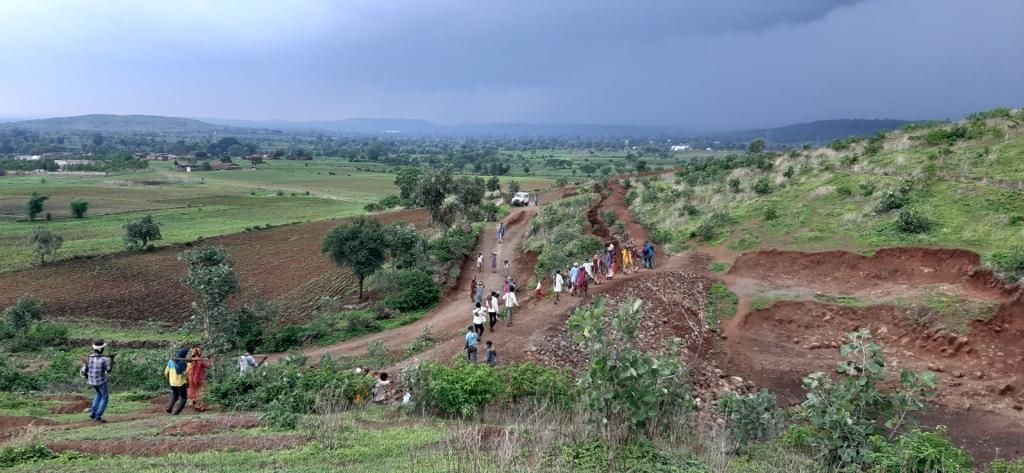
The community in Undakhora, a village of 250 households in Pratapgarh district of Rajasthan, has made significant strides towards resilience by practising sustainable agriculture, harvesting water and ensuring social security over the past 10 years. Before 2007, the community struggled to find fodder for their livestock – mostly small ruminants – due to extreme water scarcity in the summer months; this also meant that they could only cultivate rain-fed kharif crops of soyabean, groundnuts and corn.
The community was, however, determined to improve their living conditions, and realised early on that the health of their 75 acres of commons was critical to achieving the same. In 2008, the community formed the Hanuman Gram Vikas Samiti to facilitate varied interventions to improve the health of their village commons or peduk, which would in turn elevate the community's livelihoods and well-being. The Samiti members, Self Help Group (SHG) members, and the rural cadre were trained on water conservation and management practices, along with sustainable agriculture practices such as seed and soil treatments to promote healthy growth.

At the same time, the community was able to mobilise funds from institutions like NABARD to implement tank deepening and trenches on the commons and farm ponds on private lands. The increased water availability in the village resulting from these interventions, coupled with the adoption of practices such as preparing and using jeevaamrut (organic manure made from cow-dung/urine), exchanging seeds and rotating crops helped the community take a second crop and cultivate wheat, mustard, grams, and other pulses during the rabi season. Shifting to practices like sprinkler-irrigation also helped the community use their water resources judiciously.
For the purpose of enhancing livelihoods, the Samiti supported poor households with pairs of well-bred Sirohi goats for them to rear. This breed produces higher quantities of milk, is stronger, and has a longer life expectancy. Encouraged to breed them with desi male goats, the community was able to improve the immunity of their goats and, thus reduce the periodic expenditure on their medical treatments. This, in turn, improved the resilience of their household incomes. In times of emergencies, these families have been able to sell the goats in the market, fetching them around INR 10-12,000 per goat, while they would earlier get a maximum of INR 5,000 for a goat.

The community also learnt about the art of sharing. When some households were provided with a small amount of seeds to help grow their crops, the Samiti helped them collect more seeds upon harvesting the crop to be shared with many other households for the next season.
“We now have better knowledge of water management, agriculture and animal husbandry. I feel like the migration has drastically reduced because people are able to earn sufficiently by staying in the village itself,” says Ruplal, Panchayat Resource Person.
The community also noticed that their tank had collected silt over the past two years, and the water level in their wells had started dropping. The CRPs - having been dedicatedly measuring groundwater levels through the Groundwater Monitoring Tool (GWM) tool under the Napo Jal Bachao Kal campaign - swiftly supported the community in including the desilting of the tank in their Gram Panchayat Development Plan last year.
The womenfolk are equally enthusiastic about participating in these conversations through Mahila Sabhas, and even encourage their children to speak about any issues faced in school during the Bal Sabhas. Last year, they ensured that the paani ki tanki being constructed on the village land be made where many vulnerable people could benefit from it. They are now working to establish a ‘bank’ for some native species of crop seeds. With such a strong sense of ownership over their resources, there is no looking back now for the people of Undakhora.
/articles/learning-their-way-water-security-and-better-incomes